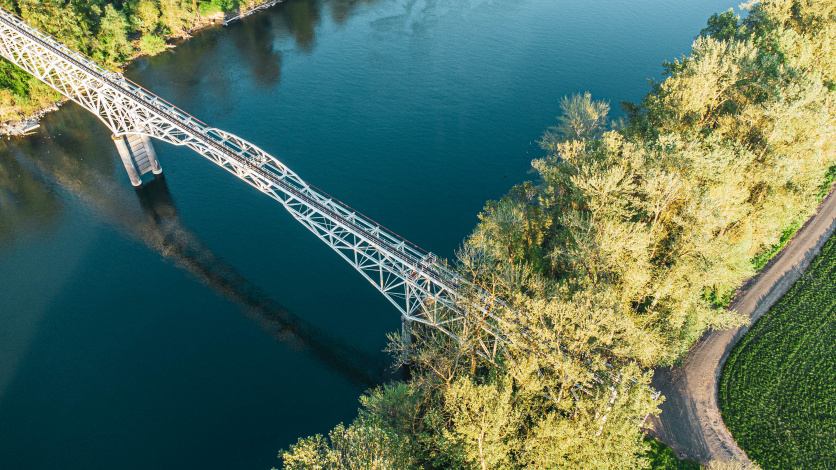- Government
-
- City Council & Mayor Ordinances Resolutions Agendas and Meetings Boards and Commissions City Charter Contact Us
- Departments A-Z Administration City Attorney City Manager City Recorder Court Human Resources Community Development Building Economic Development Planning Tourism Emergency Management
- Finance Library Municipal Services Billing (Water Bill) Police 9-1-1 Code Compliance Public Works Engineering Maintenance Operations
-
- Community
- Business
- How Do I
-
- Find info on Public meetings Apply for a job Apply for an internship Contact the City Council Submit a Public Records Request Report an issue in Newberg Find a leak Find pavement maintenance information View the City Events calendar Apply for a library card Find the city on Social Media
- Pay my Municipal Services Statement (Water Bill) Read my Municipal Services Statement (Water Bill) Access Municipal Services Programs Know if I need a building permit Apply for a building permit Schedule an inspection Recycle Buy Compost Get a water conservation kit
- Apply for a Police ride-along Volunteer as a Reserve Officer Pay My Parking Ticket File a Code Complaint Obtain an animal permit
-
City Seeks Purchase of Secondary Water Source

City seeks purchase of secondary water source
1/19/2022
Article from the Newberg Graphic
The city is taking steps to ensure Newberg's future.
On Tuesday, the Newberg City Council considered a resolution finalizing the purchase of water rights on the Willamette River, effectively securing a second water source for the city. The redundant source, which will be purchased from WestRock Northwest, will provide the city with approximately four to eight million gallons of water a day.
"Currently the city has only one water source," Kaaren Hofmann, the city's engineer and the head of the project, said. "If something were to happen to (it), we would basically have no water."
The city would shut down, stopping commerce and industry as well as leaving residents without a source of potable water.
The water rights will cost nearly $3.2 million, which Hofmann said is the standard price for water. The city will pay for the Oregon Water Right Certificate using funds from water rates and system development charges (SDCs). As the city does not have sufficient SDC funds, staff are setting up a loan program. If adopted, the city will be required to pay a non-refundable deposit of $95,563 by Feb. 2, which is 14 days after the effective date of the agreement.
The city's primary water supply consists of wells across the Willamette River in Marion County. This source can produce about eight million gallons of water a day, which is sufficient to sustain Newberg's population for 20 years. The redundant supply will expand the current supply and allow for population growth. However, Hofmann said the city's main reason for obtaining a secondary source was to prepare for potential corruption of the primary one.
City staff first realized it needed a back-up supply while drafting its 2017 water master plan, which documented existing infrastructure and predicted what future infrastructure needs would look like to supply the city with enough water for the next 20 years.
In June 2020, the council directed the city to start the process of obtaining water rights. Staff identified Newberg's specified water needs and sought potential local water sources. Eventually, the city settled on land from WestRock, a company that was closing and selling all its property, and, in turn, the water rights attached to the land. The city and WestRock agreed on the terms of the purchase agreement in December.
Now that the city council is expected to finalize the purchase, the next step is to submit the transfer application, which formally gives the city ownership over the water rights. The approval process will take between 12 to 14 months, after which the city will pay the remainder of the purchase price.
Hofmann said even after the transfer application is approved it may be another five years before the city has the budget to build infrastructure to utilize the water rights.
"Construction is not even on the radar yet," she said.
The vote on the water rights resolution gave city staff the opportunity to update council members on another water-related project: building a new water treatment plant.
Newberg's water treatment plant, constructed in 1953, is nearing the end of its life, city staff said. To protect against immense damage during an earthquake, the plant would need seismic upgrades. It also needs covers for filters and basin to comply with Oregon Health Authority standards. Additionally, the plant cannot support full capacity.
To upgrade the existing plant, Newberg would need to invest a total of $8 million, $6.5 million for seismic upgrades and $1.5 million for covers. These upgrades would not increase the plant's life or capacity.
Comparably, building a new treatment plant that is both seismically resilient and complies with OHA's standards would cost the city $12 million. The new facility would also have a 30- to 50-year design life and decrease operations and maintenance costs approximately 25% to 50%.
Staff said the new treatment plant provides the best investment value of the two options.
The next step in the process is to build the new plant on recently purchased property. The next step will involve demolishing the old plant to make room for a new one in the future.


